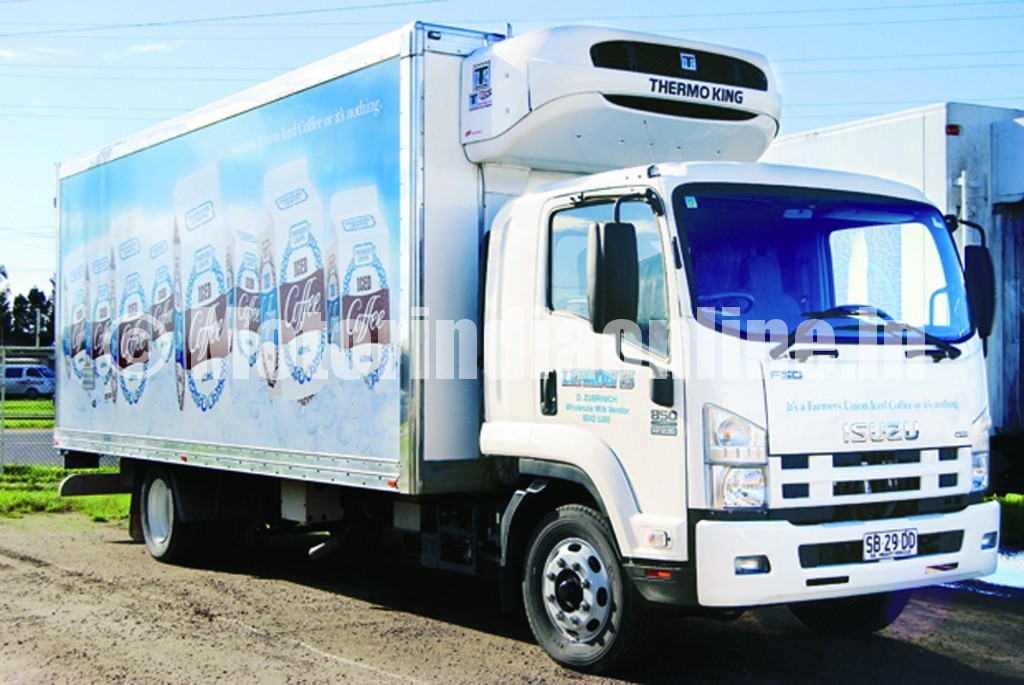A Comprehensive Summary of the Mechanisms Behind Refrigerated Vehicle Transport and Its Duty in Food Safety And Security
Cooled truck transport is crucial in maintaining food safety and security, utilizing innovative temperature control devices and insulation technologies to safeguard perishable items during transit. What ramifications do these factors have for the future of food safety and security?
Relevance of Refrigerated Transportation
Chilled transportation plays a critical function in keeping the integrity and safety of disposable items throughout the supply chain (cold transport companies). This specific logistics system is vital for protecting the top quality of food items, consisting of fresh produce, milk products, meats, and seafood, which are vulnerable to spoilage when exposed to temperature level changes. The capacity to keep a regulated and consistent environment makes certain that these products maintain their nutritional worth, taste, and security for consumers
Furthermore, cooled transportation reduces the threats of foodborne diseases, which can arise from the growth of damaging bacteria in incorrectly stored things. By sticking to rigorous temperature level needs, businesses not only conform with governing standards however likewise foster customer depend on and brand name integrity. The financial effects are substantial; lowered perishing prices translate to lower losses for merchants and vendors, contributing to general earnings.
Moreover, the boosting worldwide need for fresh and high-grade food items better emphasizes the importance of chilled transportation. As supply chains become more complicated and prolong internationally, the demand for reliable temperature-controlled logistics continues to grow, underpinning the whole food distribution network and making certain that perishable items reach their destinations securely and efficiently.
Temperature Control Mechanisms
Keeping optimal temperature control is important in the transport of subject to spoiling products, and a range of systems are employed to achieve this objective. Refrigerated trucks utilize sophisticated refrigeration systems, mostly utilizing vapor compression technology, which distributes cooling agent via evaporator and condenser coils to extract warmth from the cargo location. This process guarantees that the inside remains constantly trendy, thus protecting the quality and safety of the items being delivered.
Additionally, trucks are outfitted with temperature monitoring systems that provide real-time information on the internal setting. These systems commonly include electronic sensing units and alarm systems to alert drivers in situation of temperature changes, enabling immediate rehabilitative actions. Some refrigerated trucks also include programmable temperature setups, enabling accurate control customized to particular kinds of cargo, such as fruits, vegetables, or drugs.
Moreover, making use of pre-cooling methods prior to packing improves the effectiveness of temperature control. By decreasing the cargo location's temperature before the introduction of items, the risk of temperature level spikes during transportation is reduced. These mechanisms collectively add to a dependable chilly chain, vital for preserving the stability and safety of perishable food things throughout the transportation process.
Insulation Technologies
Insulation innovations play an essential role in enhancing the effectiveness of refrigerated truck transport by reducing thermal exchange between the freight area and the external environment. Reliable insulation is vital for keeping the needed temperature for perishable items, thus ensuring food safety and high quality during transit.
Usual insulation products utilized in chilled trucks include polyurethane foam, polystyrene, and fiberglass, each giving differing degrees of thermal resistance. Polyurethane foam, understood for its superior shielding residential or commercial properties, is usually used as stiff panels that can be molded to fit the truck's interior. Polystyrene offers a lightweight alternative while still supplying ample thermal protection. Fiberglass, although less typical, can be reliable in certain applications due to its sturdiness and resistance to dampness.

Advanced Monitoring Systems
To make sure the stability of disposable items during transportation, advanced tracking systems have become a pivotal innovation in the chilled truck market - transport refrigeration company. These systems use a combination of sensors, information loggers, and real-time tracking innovations to continuously keep track of temperature level, moisture, and general cargo conditions throughout the trip. By giving instant feedback on environmental variables, these systems allow for prompt rehabilitative activities, consequently protecting product high quality
Modern keeping track Visit Your URL of systems are furnished with wireless connection, making it possible for seamless data transmission to logistical centers and stakeholders. This connectivity assists in remote surveillance, which is necessary for maintaining compliance with market laws and criteria. Alerts can be created in real-time, notifying operators of any kind of variances from pre-set limits, therefore decreasing the threat of putridity.
Moreover, the integration of sophisticated analytics and artificial intelligence formulas enhances predictive abilities, enabling much better preparation and risk analysis. Historic data gathered from these systems can educate future transportation approaches, optimizing courses and lowering prospective threats. Overall, the implementation of innovative monitoring systems represents a substantial innovation in the cooled transport industry, enhancing the commitment to maintaining the quality and security of perishable products throughout their trip.
Influence On Food Safety Requirements
The integration of innovative tracking systems in refrigerated vehicle transport has actually considerably influenced food security requirements across the supply chain. These systems make it possible for real-time tracking of temperature, humidity, and various other important parameters important for maintaining the honesty of disposable products. By guaranteeing that items continue to be within specified temperature ranges during transportation, these innovations minimize the threat of microbial growth and perishing, which are critical in food safety.

The adoption of data analytics also permits positive decision-making, making it possible for companies to recognize possible issues look here before they escalate right into food safety violations. Consequently, the unification of advanced tracking systems not only enhances operational effectiveness yet also promotes greater responsibility in the food supply chain. This advancement underscores the crucial role of modern technology in elevating food safety and security criteria and guaranteeing consumer confidence in the items they get.
Conclusion
To conclude, refrigerated vehicle transportation is vital for preserving food safety with efficient temperature level control, progressed insulation innovations, and continual surveillance systems. These devices work synergistically to maintain the top quality of perishable items and reduce the danger of foodborne illnesses. Adherence to strict food safety and security requirements is attained with the implementation of these modern technologies, highlighting the vital duty of refrigerated transportation in click the food supply chain and its effect on public wellness.
Chilled vehicle transport is crucial in maintaining food safety, utilizing sophisticated temperature level control devices and insulation innovations to secure perishable products throughout transportation - transport refrigeration. Correct upkeep of insulation honesty, including routine checks for wear or damage, is likewise vital to suffer the efficiency of refrigerated transport systems and ensure compliance with food security guidelines
The assimilation of innovative surveillance systems in cooled truck transport has considerably affected food safety and security criteria throughout the supply chain.In verdict, chilled truck transport is important for preserving food security through reliable temperature level control, progressed insulation modern technologies, and continual surveillance systems. Adherence to stringent food safety criteria is accomplished with the implementation of these innovations, highlighting the essential function of chilled transport in the food supply chain and its effect on public health and wellness.
Comments on “Benefits of Partnering with Developed Transport Refrigeration Companies”